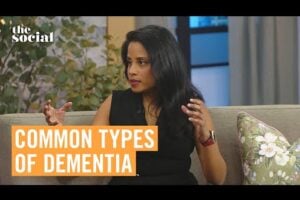Welcome
Alzheimer’s & Dementia Weekly was inspired by my mother’s journey with autoimmune dementia and my dad’s with Parkinson’s dementia.
Walking beside them opened my eyes to the confusion, the courage, and the deep humanity found in families and professionals caring for someone they love.
Since its debut in 2007, this site has had one clear mission:
to separate the wheat from the chaff — to highlight only the most essential articles, studies, tools, and videos from the overwhelming river of dementia-related information.
(At last count, Google receives a new post on Alzheimer’s or dementia every seven minutes.) For anyone seeking clarity or support, that constant flow can be exhausting and discouraging.
Alzheimer’s Weekly filters, translates, and explains what matters most, helping hundreds of thousands of families, clinicians, and care teams around the world make sense of the latest research and best practices.
This site is dedicated to everyone who works—often quietly and tirelessly—to preserve dignity in the community of people living with dementia.
About the Editor
With experience in dementia caregiving, public education, and Alzheimer’s-focused writing—and a professional research background shaped in what many consider one of the world’s top laboratories—I work to make complex findings clear, practical, and genuinely helpful for both families and professionals providing care.
My goal is simple:
Translate the best science into guidance that lightens the load, strengthens understanding, and helps every person with dementia live with dignity.
Peter Berger
Editor, Alzheimer’s Weekly












My husband has a very similar story, he’s 55 and has seen 4 different neuro specialists over the past 5 years. No short term memory and becomes confused if stressed or tired. The only diagnosis we’ve gotten is Mild Neurocognitive Impairment. Which basically just confirms there’s a problem but doesn’t tell us what the problem is! No diagnosis means no treatment and no support. All very frustrating!
I hope you didn't spend a lot of money making this video since you are completely incorrect on much of what was said. The Mini Mental Status Exam is a screening tool, not a diagnostic tool. It cannot be used to diagnose dementia. The gold standard for diagnosing dementia and differentiating between the various types of dementia is neuropsychological assessment. you clearly did not speak to a neuropsychologist (such as myself) prior to making this video. And another "tell" that you don't actually know what you are talking about is the pronunciation of frontotemporal — it is fronto TEMP oral, not not fronto tem PORAL. You do a disservice to people who actually need an assessment for an accurate diagnosis and I hope you are willing to correct your mistakes!
🙂
The video was made by Kahn Academy. They have a sterling reputation.
You are right and Khan is wrong regarding the place in the word frontotemporal that gets the accent. While I am surprised that a reputable institution like the Khan Academy would make an error in accenting an important word, it seems on balance to say that it is one huge leap to conclude that this means "you don't actually know what you are talking about." That sounds like the proverbial "swatting the fly with a sledgehammer".
Did you listen to the video more than once? In the very first minute of the video, the speaker says, quote:
"…it is not diagnosed until a complete medical assessment is performed."
In the context of that introduction, the statement that the "MMSE can help in diagnosing dementia" is perfectly in line with the statement on the authoritative Alzheimer's Society website that says, "The MMSE test can be used by clinicians to help diagnose dementia."
Thanks for the feedback. While the feedback's TEMPerature is a tad high, it contains important points to be fixed or clarified. Much appreciated.
I have had all those tests several times, been in or am in several studies, still ongoing studies and being put into studies regularly over the past 6 years. I am under the care of 3 Doctors, the one I go see, we arrive at 9 AM and leave around 5:3PM. I have lost my short term Memory totally. I meet People who know me, but I have no clue who they are. I try to tell some one where something is, and it always a 20 minute description with never mentioning the place. And I am all of 58 years old.